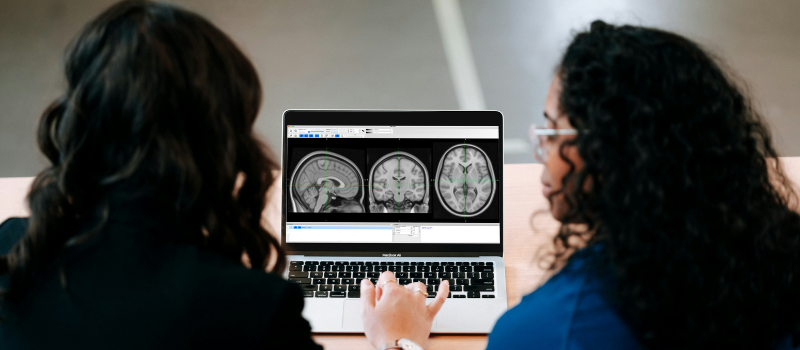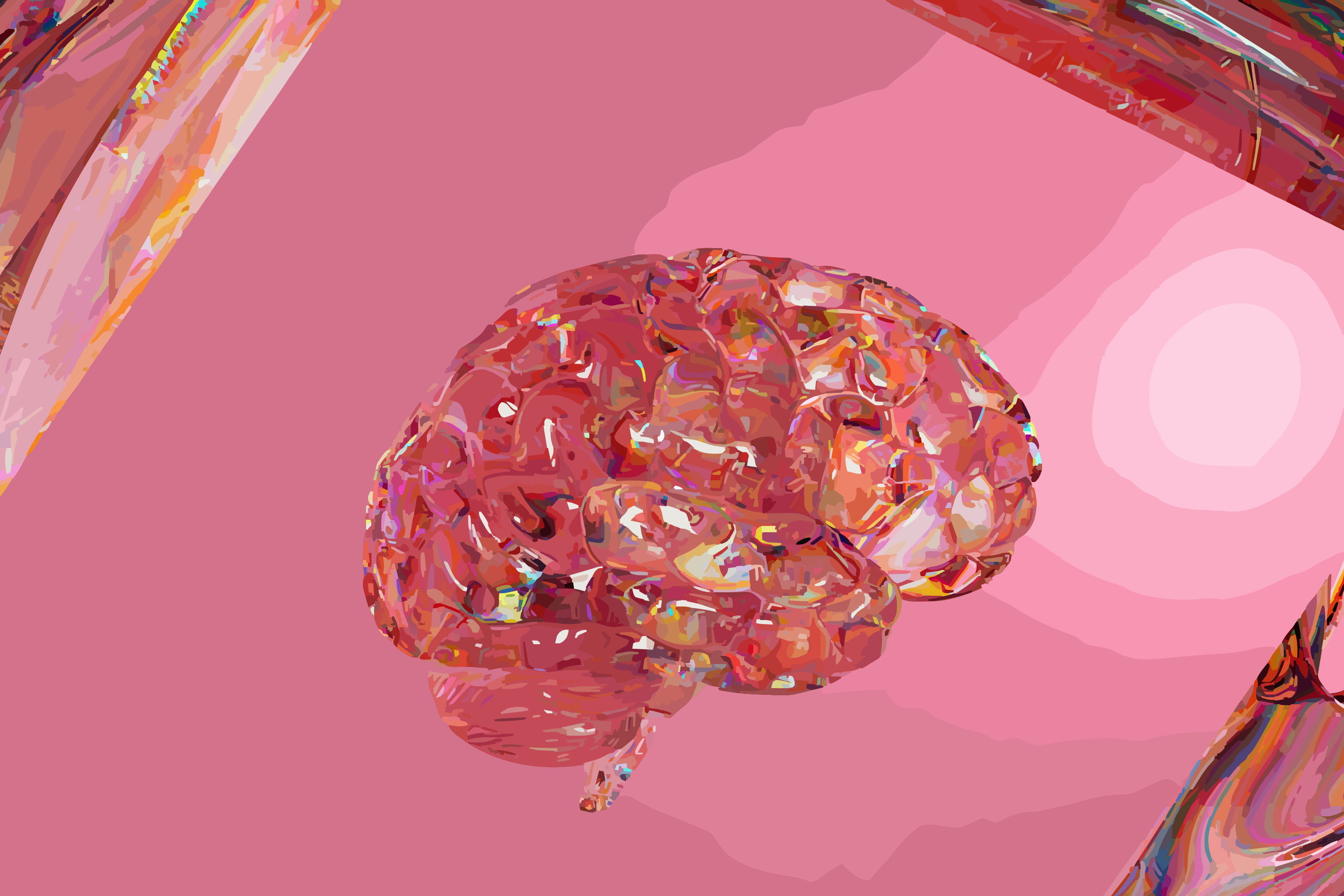You know that feeling when you can't find the right word, forget why you walked into a room, or read the same paragraph three times without absorbing anything?
This is brain fog — and yes, it's absolutely real.
For years, people dismissed brain fog as laziness, stress, or "just getting older." Even some doctors brushed it off as a vague complaint that couldn't be measured or treated.
Then came long COVID. Suddenly, millions of previously sharp, high-functioning people were experiencing major cognitive symptoms. Brain fog went from "not a real thing" to front-page news practically overnight.
Turns out, your cloudy thinking isn't a character flaw or inevitable part of aging. It's a legit symptom with identifiable causes and (more importantly) fixable solutions.
Brain fog affects your ability to concentrate, remember, and process information. It can make you feel disconnected from your own thoughts, like you're thinking through molasses (not quite as tasty, though).
Fortunately, once you understand what's actually happening in your brain and why, you can take specific steps to clear the haze.
What Is Brain Fog? (And Yes, It's Definitely Real)

Brain fog is a collection of cognitive symptoms including difficulty concentrating, memory problems, mental fatigue, and reduced mental clarity. It's not a medical diagnosis itself, but a real symptom pattern recognized by healthcare professionals.
With brain fog, everything takes more effort, processing slows down, and your usual mental sharpness feels dulled. You might struggle to find words, lose your train of thought mid-sentence, or feel like you're thinking through a thick haze.
Common brain fog symptoms include:
- Difficulty concentrating or focusing
- Memory problems (especially short-term)
- Mental fatigue that doesn't improve with rest
- Trouble finding the right words
- Feeling "cloudy" or disconnected from your thoughts
- Reduced problem-solving ability
- Taking longer to process information
Everyone has off days, but brain fog persists even when you're well-rested. It's not about being sleepy. It's about your cognitive processes feeling sluggish and unreliable.
Brain fog affects people of all ages, but it's common in women (especially during hormonal changes), people with chronic conditions, and anyone experiencing prolonged stress. Post-COVID brain fog affects around 20% of COVID survivors.
The Science Behind Brain Fog
Your brain isn't actually "foggy" (but you knew that already). However, something very real is happening at the cellular level that creates that cloudy feeling: neuroinflammation.
When your brain's immune system activates in response to stress, illness, or other triggers, it releases inflammatory chemicals called cytokines. These chemicals are meant to protect your brain, but they also slow down communication between neurons.
It’s a lot like traffic during rush hour. The roads (neural pathways) are still there, but everything moves slower. Information that normally zips between brain cells starts crawling along, creating that sluggish, disconnected feeling.
Here's what happens during brain fog:
- Your brain's glial cells (the support crew for neurons) become overactive and release inflammatory substances. This inflammation disrupts the normal electrical activity between brain cells, making it harder for them to communicate.
- Your brain's energy production also takes a hit. Mitochondria (yes, the powerhouses of your cells) become less efficient when inflammation is present. Less energy means slower processing speed and mental fatigue.
- Blood flow to certain brain regions can decrease, especially in areas responsible for attention, memory, and executive function. It's like trying to run a super fancy dryer on a low voltage outlet.
The research backs this up. Brain imaging studies of people with brain fog show reduced activity in the prefrontal cortex (responsible for focus and decision-making) and changes in white matter connectivity. This isn't psychological: it's noticeable physical changes in brain function.
You’ve been waiting for the good news, right? Lucky for you, there is some: neuroinflammation is often reversible once you address the underlying causes.
What Actually Causes Brain Fog

Brain fog is your brain's response to stressors and imbalances. Here are the reasons that can happen:
- Sleep deprivation and poor sleep quality. Your brain literally cleans itself during deep sleep, flushing out toxins and consolidating memories (that’s not fallacy, either — research backs it up). When you don't get quality sleep, waste products accumulate and cognitive function tanks. Even one night of poor sleep can trigger brain fog that lasts for days.
- Chronic stress and elevated cortisol. Prolonged stress floods your brain with cortisol, which directly impairs memory formation and retrieval. Chronic stress also promotes neuroinflammation and disrupts neurotransmitter balance (AKA, the perfect storm for cognitive dysfunction).
- Nutritional deficiencies. Your brain is an energy hog that consumes 20% of your daily calories (cool, huh?). Deficiencies that cause brain fog include B12 (essential for nerve function), iron (needed for oxygen transport), vitamin D (affects neurotransmitter production), and omega-3 fatty acids (crucial for brain cell membranes).
- Blood sugar imbalances. Your brain runs almost exclusively on glucose. When blood sugar spikes and crashes throughout the day, your brain's fuel supply becomes erratic, leading to periods of mental fatigue and poor concentration.
- Hormonal changes. Estrogen, thyroid hormones, and testosterone all affect brain function. Menopause, thyroid disorders, and hormonal fluctuations can impact cognitive clarity. That's why many women experience brain fog during perimenopause or after having children.
- Medical conditions. Autoimmune disorders, chronic fatigue syndrome, fibromyalgia, and long COVID all commonly cause brain fog through inflammation and immune system dysfunction.
- Medications. Antihistamines, blood pressure medications, antidepressants, and sleep aids can cause cognitive side effects that feel a whole lot like brain fog.
- Dehydration and sedentary lifestyle. Even mild dehydration reduces cognitive performance, while lack of physical activity decreases blood flow to the brain and reduces the production of brain-derived neurotrophic factor (BDNF).
And, for better or worse, brain fog is usually associated with several of these problems working in unison. That makes it harder to pinpoint what’s actually causing your own haze, but it also means you might not have one major problem (just a few smaller ones).
Evidence-Based Ways to Clear Brain Fog
Forget generic advice about "eating better" and "getting more sleep." Yeah, we could all use more of that, but these strategies target the specific mechanisms that cause brain fog.
The techniques that address root causes work better than quick fixes.
Your brain fog didn't develop overnight (and it won't disappear overnight), but these methods can start improving your mental clarity within days or weeks.
Here are research-backed strategies that actually work:
- Optimize Sleep Architecture — Focus on deep sleep quality, not just duration
- Master Stress Recovery — Use proven techniques to lower cortisol and inflammation
- Fix Your Fuel System — Address blood sugar volatility and brain energy
- Target Nutritional Gaps — Test for and correct specific deficiencies
- Activate Your Brain's Cleanup Crew — Boost natural detoxification processes
- Increase Cognitive Blood Flow — Enhance circulation to your brain
- Train Your Attention Muscle — Use specific exercises to rebuild focus
1. Optimize Sleep Architecture
Quality matters more than quantity when it comes to clearing brain fog.
Your brain's glymphatic system (its waste removal network) primarily operates during deep sleep. This system flushes out inflammatory proteins and metabolic waste that accumulate during waking hours. Without adequate deep sleep, these toxins build up and directly impair cognitive function.
Research shows that even partial sleep deprivation can dramatically reduce cognitive performance. That means it’s more than just getting 8 hours — it's about getting quality deep sleep and REM sleep.
How to do it: Keep your bedroom between 65-68°F, completely dark, and use white noise (if needed). Avoid screens 1-2 hours before bed or use blue light blockers. Start a consistent sleep schedule, even on weekends. Consider magnesium glycinate (200-400mg) 30 minutes before bed to improve sleep quality.
2. Master Stress Recovery
Chronic stress is brain fog's biggest enemy. You need active recovery, not just relaxation.
Elevated cortisol directly impairs the prefrontal cortex while promoting inflammation throughout your nervous system.
Still, it's not about eliminating stress (if only we could all do that), it's about improving your recovery from stress.
Studies show that people who practice stress recovery techniques have measurably lower levels of inflammatory markers and better cognitive performance, even when facing the same stressors.
How to do it: Practice box breathing (4 counts in, 4 hold, 4 out, 4 hold) for 5 minutes daily. Try progressive muscle relaxation before bed. Take 5-10 minute "stress breaks" during your day to reset your nervous system.
3. Fix Your Fuel System
Your brain needs steady glucose instead of sugar roller coasters.
Blood sugar spikes and crashes correlate with brain fog episodes. When glucose levels fluctuate wildly, your brain alternates between being overstimulated and energy-starved. This creates the perfect conditions for cognitive dysfunction.
Research shows that people with better blood sugar control score much higher on tests of attention, memory, and processing speed (even if they don't have diabetes).
Now, I’m not saying not to eat some ice cream here or there…let’s just be a little bit more strategic about it.
How to do it: Eat protein and fiber with your meals to slow glucose absorption. Avoid eating carbs alone — pair them with fat or protein. Try intermittent fasting (12-16 hour fasting window) to improve insulin sensitivity. Monitor how different foods affect your mental clarity and adjust accordingly.
4. Target Nutritional Gaps
Test, don't guess. Specific deficiencies cause specific cognitive symptoms.
Your brain requires certain nutrients to function optimally.
- B12 deficiency causes memory problems and mental fatigue.
- Iron deficiency reduces oxygen delivery to brain cells.
- Vitamin D deficiency is linked to depression and cognitive decline.
You can't supplement your way out of brain fog without knowing what you're actually missing.
Studies show that fixing nutritional deficiencies can improve cognitive function within just 4-12 weeks, but that’s only when you address the right deficiencies.
…which means a multivitamin might actually fix some of your problems.
How to do it: Get blood tests for B12, vitamin D, iron/ferritin, and thyroid function. Consider comprehensive nutrient testing if brain fog continues. Focus on food sources first: B12 from fish and meat, iron from leafy greens and lean protein, vitamin D from sun exposure or quality supplements. Work with a healthcare provider if you need additional supplementation.
5. Activate Your Brain's Cleanup Crew
Support your brain's natural detoxification systems.
Your brain has super smart mechanisms for removing waste and toxins, but they can become overwhelmed or inefficient. The glymphatic system, autophagy (cellular cleanup), and antioxidant networks all play important roles in maintaining cognitive clarity.
Research shows that people with more active detoxification systems have better cognitive resilience and lower rates of neurodegenerative disease.
How to do it: Stay hydrated (half your body weight in ounces of water daily) to support glymphatic flow. Include cruciferous vegetables (broccoli, Brussels sprouts) to support liver detoxification. Try intermittent fasting to activate autophagy. Consider N-acetylcysteine (NAC).
6. Increase Cognitive Blood Flow
Better circulation means better brain function.
Your brain uses 20% of your blood supply despite being only 2% of your body weight. When circulation decreases (due to poor cardiovascular health, dehydration, or sedentary behavior) cognitive performance is the first to suffer.
Studies show that even light exercise can increase blood flow to the brain and improve cognitive performance within minutes.
How to do it: Take 2-5 minute movement breaks every hour or so. Try cold exposure (cold showers, ice baths) which research shows increases circulation and alertness.
7. Train Your Attention Muscle
Rebuild your focus through targeted cognitive exercises.
Brain fog often includes difficulty sustaining attention and filtering out distractions. Like any skill, attention can be trained and strengthened through practice.
Studies show that people who practice attention training show measurable improvements in working memory, processing speed, and sustained focus.
How to do it: Practice focused attention meditation for 10-20 minutes every day. Start with focusing on your breath and slowly build up the duration. Try cognitive training apps that target working memory and attention. Read physical books (wild, right?) for 20-30 minutes daily to practice sustained attention. Limit multitasking (research shows it actually impairs cognitive performance).
When to See a Doctor About Brain Fog
Most brain fog improves with lifestyle changes, but some symptoms require medical attention.
I’m not a doctor (by any means), and this doesn’t constitute medical advice…but it’s always a good idea to talk to a doctor about any health concerns, especially before implementing any lifestyle changes (that could exacerbate the problem or create brand-new problems).
Your doctor can test for underlying conditions like thyroid disorders, autoimmune diseases, vitamin deficiencies, or medication side effects. Don't dismiss persistent cognitive symptoms — early intervention almost always leads to better outcomes.
Brain fog is real…but it's also fixable when properly evaluated (and treated).
Get Your Mental Clarity Back (Sooner Rather than Later)
Brain fog isn't something you have to accept or live with. It's not just a normal part of aging, stress, or being busy. It's your brain telling you something needs attention.
Start with one strategy from this article: just one. Maybe it's optimizing your sleep temperature tonight. Maybe it's taking a 5-minute movement break every hour today. Maybe it's finally getting that blood work done to check for deficiencies.
The compound effect of clearing brain fog starts with a single change, implemented consistently. Your sharp, focused mind is still there underneath the haze — it just needs the right conditions to emerge.
Don't wait for brain fog to get worse or hope it magically disappears. The sooner you address the root causes, the faster you'll get your mental clarity back.
Want to start thinking (more) clearly again? Subscribe to Hold That Thought for more science-backed strategies to optimize your brain and upgrade your thinking.
.png)

.png)
